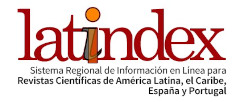RECYCLABLE DOMESTIC SOLID WASTE IN FAMILY FARMS: A CASE STUDY IN SOUTHERN BRAZIL
Keywords:
Family farming, Household waste, Solid waste managementAbstract
Recycling domestic solid waste is a growing urban world demand; however, there are few studies about it in areas dominated by small farms, as in Brazil. To quantify the current composition of domestic rural waste, we monitored gravimetric composition of recyclable domestic solid waste and economic indicators in the homes of 31 family farmers in Southern Brazil for a period of 12 months. The annual expenditure average on domestic products was US $1,681.26 per family, which produced about 21 kg of waste.year-1. This waste was divided into plastic (46.47%), paper and cardboard (27.18%), glass (13.28%), metal (8.58%), Tetra Pak© cartons (3.00%), mixed (0.98%) and polystyrene fractions (0.52%). A higher production of waste occurred in the months of December and August. Each resident was estimated to produce 405 kg of domestic solid waste over the course of their lives, and total domestic solid waste for all 31 farms was approximately 40 tons per year. We encourage municipal managers to determine the adequacy of the rural community storage system and transportation in accordance with different levels of production of recyclable household rural waste, especially for plastics.Downloads
Published
2019-05-30
How to Cite
Bechara, F. C., Pasquali, L., Dickens, S. J., Martin, T. N., O'Connor, P. H. P., Gerber, D., & Perondi, M. A. (2019). RECYCLABLE DOMESTIC SOLID WASTE IN FAMILY FARMS: A CASE STUDY IN SOUTHERN BRAZIL. Revista Brasileira De Gestão E Desenvolvimento Regional, 15(3). Retrieved from https://www.rbgdr.com.br/revista/index.php/rbgdr/article/view/4668
Issue
Section
Artigos
License
Authors who have their papers accepted and published in the Brazilian Journal of Regional Management and Development must agree to the copyright policy CC BY https://creativecommons.org/licenses/by/4.0/.
If the article is accepted for publication, the copyright is automatically assigned to the Brazilian Journal of Regional Management and Development.
















